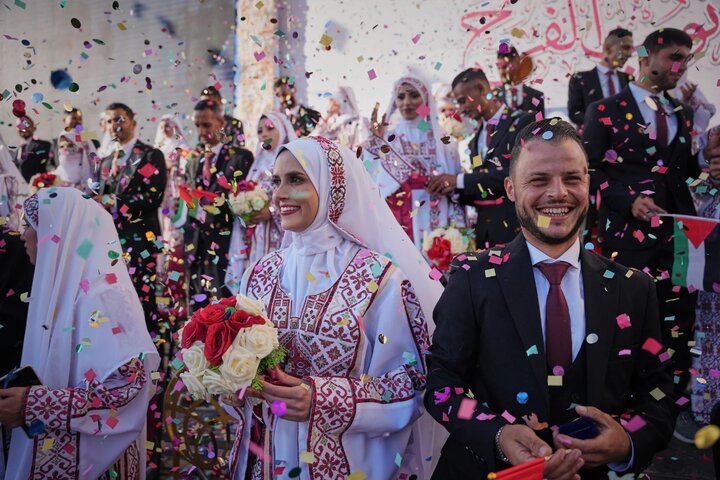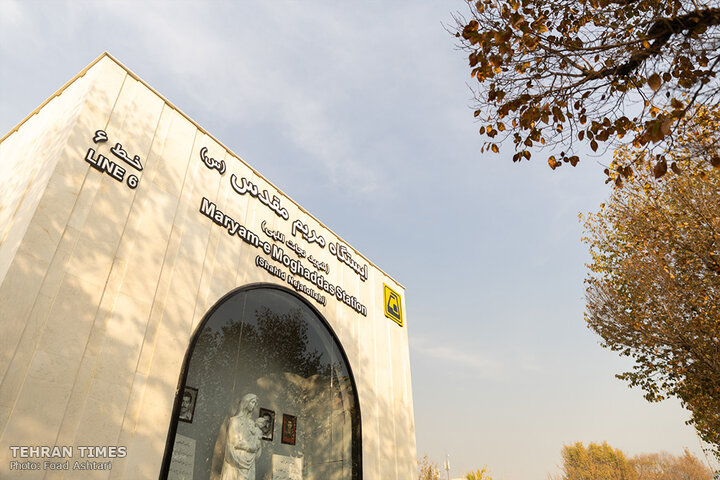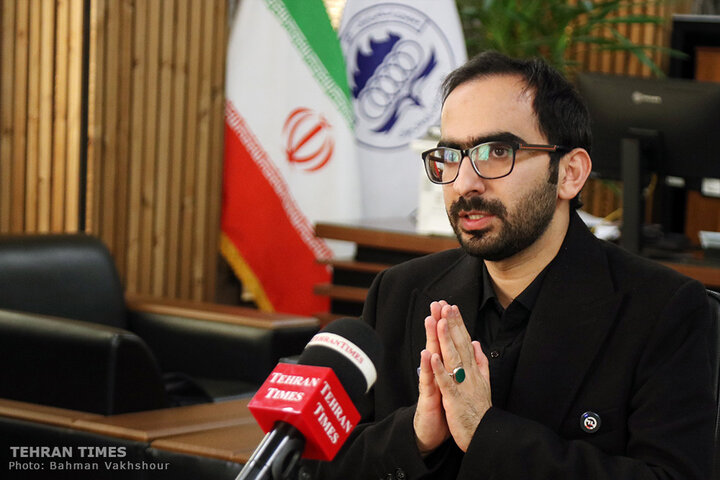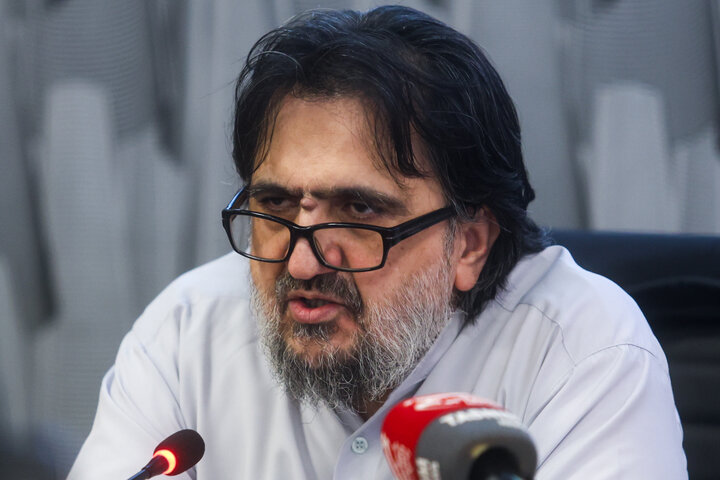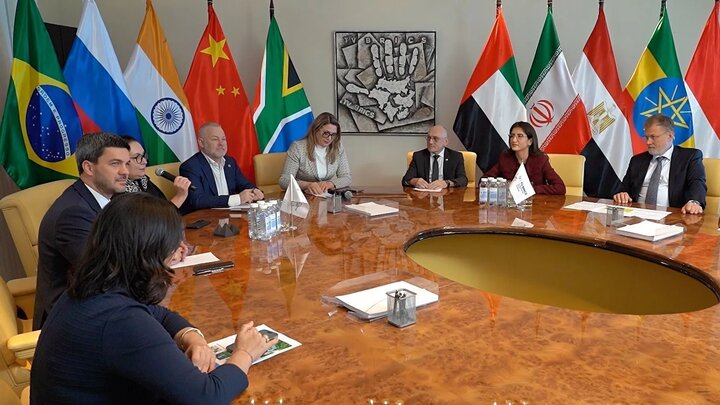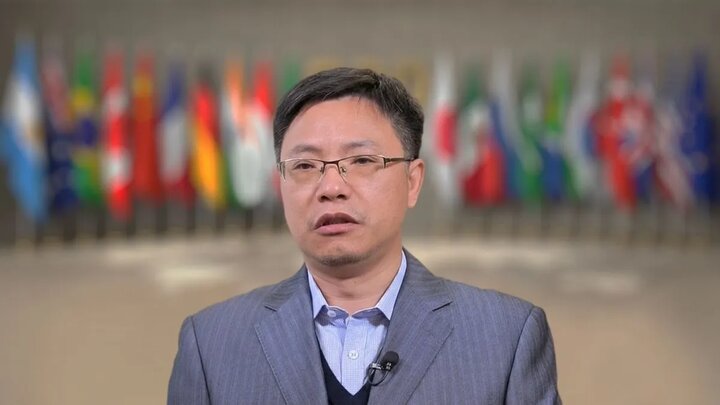-
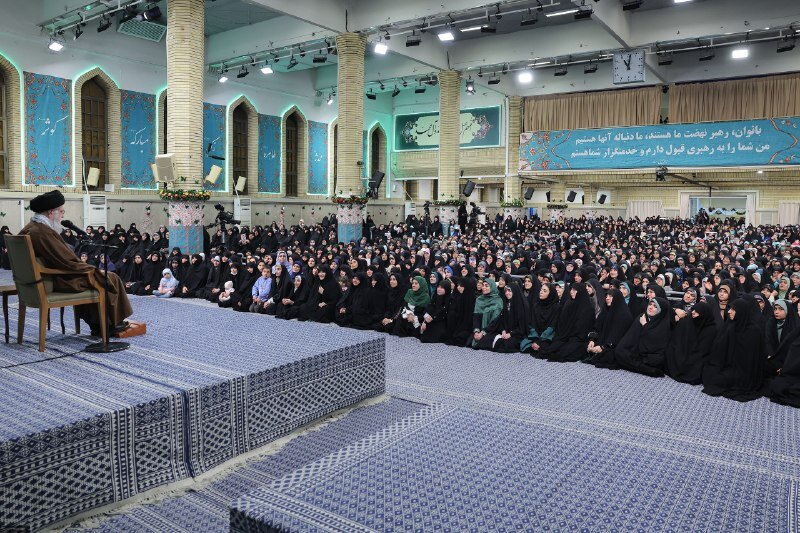 2025-12-03 22:06
2025-12-03 22:06
'Iranian women’s advances demonstrate hijab is no barrier to progress'
Leader sits down with thousands of Iranian women from different walks of life
TEHRAN – Leader of the Islamic Revolution Ayatollah Seyyed Ali Khamenei addressed thousands of women in Tehran on Wednesday, discussing their status and achievements.
-
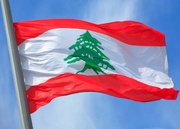
By Sondoss Al Asaad
Naqoura talks: Trojan Horse of economic and political normalization
BEIRUT—The Lebanese government’s decision to appoint former ambassador Simon Karam, a civilian with openly political positions, to lead the Lebanese delegation in the so-called Military Technical Committee meetings in Naqoura is not a procedural adjustment. Rather, it is a political landmine.
-

By staff writer
The mirage of peace: Gaza under fire
TEHRAN – It has been more than 50 days since a ceasefire between Israel and Hamas took effect, intended to end the Gaza war. For Palestinians, however, that promise has meant nothing. The Israeli bombardment has continued unabated, and the humanitarian crisis has only deepened.
-
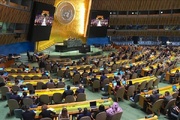
By Wesam Bahrani
Global rebuke of Israeli occupation
TEHRAN – The United Nations overwhelmingly condemns the ongoing Israeli occupation of Arab lands amid opposition by the U.S. and a few of its allies.
-
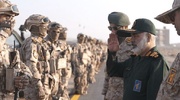
By Mona Hojat Ansari
SCO anti-terror drill enters critical phase
Iranian commander says "nations’ will stronger than terrorism"
TEHRAN – A multinational military exercise taking place in Iran was preparing to enter its most important phase Wednesday, with the hosts hailing it as an important sign of cooperation toward ensuring regional security and peace.
-
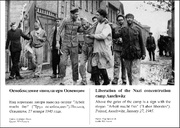
By Alexey Dedov, Ambassador of the Russian Federation to Iran
Warsaw distorting history, sowing discord between Iran and Russia
For years, the Tehran Times has served as a communication channel for distinguished members of Tehran’s diplomatic corps. The two recent correspondences received in the past weeks are just the latest in many such exchanges the publication has facilitated.
Politics
-
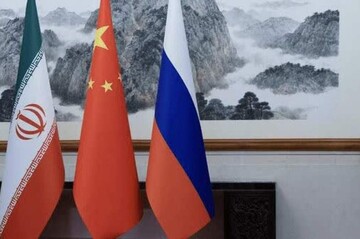
In a UN letter, Iran, Russia and China hit back at West’s exploitation of the deal it abandoned
TEHRAN – Iran, Russia, and China appeared to react to the West’s ongoing attempts to leverage the already battered and now expired JCPOA as a pressure tool against Iran when their UN ambassadors, in a joint letter, reminded that all provisions of UNSC Resolution 2231—the resolution endorsing the JCPOA— were terminated after October 18, 2025, under Operative Paragraph 8 of that resolution.
-
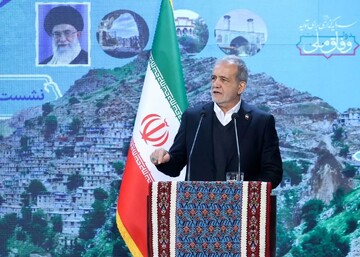
Pezeshkian says no degree of pressure can force Iran into submission
TEHRAN – Iranian President Masoud Pezeshkian said on Tuesday that no degree of pressure can force a determined and resilient nation into submission, declaring that Iran’s adversaries “cannot impose their demands with equipment and aircraft.”
-
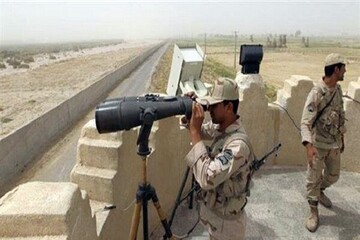
Iran taking new steps to boost security along borders
TEHRAN – Iran is implementing new security measures along its borders to defend against reported escalating threats in the east and the west.
Sports
-
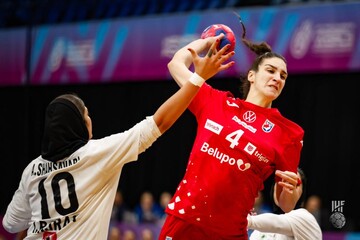
Iran fall short to Croatia at 2025 President’s Cup
TEHRAN – Iran’s women’s handball team fell short to Croatia 38-9 in Group I of the President’s Cup on Thursday.
-

Iran changes mind about not attending 2026 FIFA World Cup draw
TEHRAN – Iran’s football federation has reconsidered its stance on attending the 2026 FIFA World Cup draw and will send two representatives to the ceremony.
-

Iran’s Zandi takes gold at 2025 World U21 Taekwondo Championships
TEHRAN – Iran’s Abolfazl Zandi won a gold medal at the 2025 World U21 Taekwondo Championships on Wednesday.
Culture
-
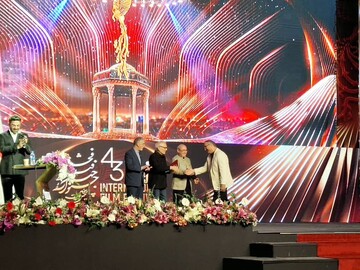
43rd Fajr International Film Festival concludes in Shiraz
TEHRAN-The 43rd Fajr International Film Festival (FIFF) concluded on Tuesday night, with an awards ceremony held at the Honar Shahr Aftab Cineplex in Shiraz, Fars Province.
-
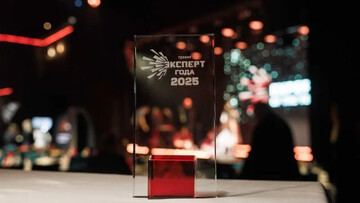
Mehr Media Group shines in Moscow, named as international Expert of the Year 2025
TEHRAN- In a distinguished ceremony held in Moscow on Tuesday, the Mehr Media Group has been recognized among the top three international winners at the 14th edition of the Expert of the Year 2025 awards.
-
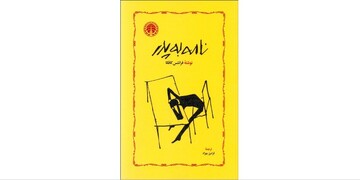
Kafka’s “Letter to His Father” appears in Iranian bookstores
TEHRAN- A Persian translation of Czech writer Franz Kafka’s book “Letter to His Father” has recently been published by Kharazmi Publications in Tehran.
Economy
-
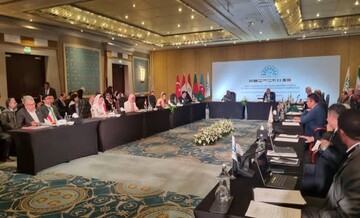
Iran achieves remarkable growth in trade with D-8 members in 5 years
TEHRAN- The head of Iran’s Trade Promotion Organization (TPO) emphasized that Iran's trade relations with D-8 member states have grown by over 150 percent in the past five years, reaching $22 billion. However, while this figure indicates significant trade potential among the group's members, it still falls short of the desired level.
-
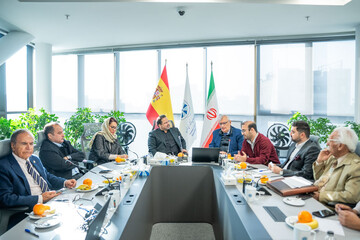
Iranian industrialists discuss expanding economic relations with Spain
TEHRAN- In a recent meeting of the Industry and Mining Committee of the Tehran Chamber of Commerce, Industries, Mines and Agriculture (TCCIMA), private sector representatives hosted the head of the Spanish Embassy's Economic Office in Tehran.
-
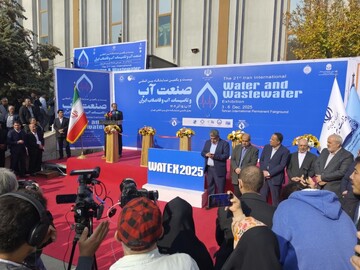
WATEX 2025, an opportunity to introduce new technology, attract investment
TEHRAN- The 21st Iran International Water and Wastewater Exhibition (WATEX 2025) commenced on Wednesday, December 3rd, at the Tehran Permanent International Fairground and will host water industry professionals for four days.
Society
-
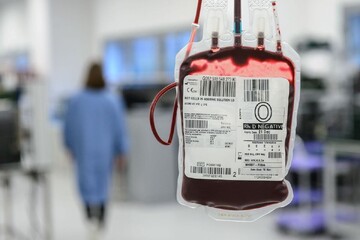
Over 1.6 million people donate blood in 8 months
TEHRAN – A total of 1,621,911 Iranians donated blood in the first eight months of the current Iranian year, which started on March 21, according to an official with the Blood Transfusion Organization.
-
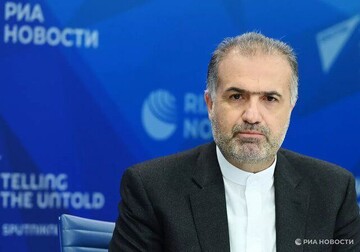
Moscow to host Iran-Russia joint ICT working group
TEHRAN – The fifth meeting of the Iran-Russia joint working group in the Information and Communication Technology (ICT) sector will be held in Moscow from December 6 to 7.
-
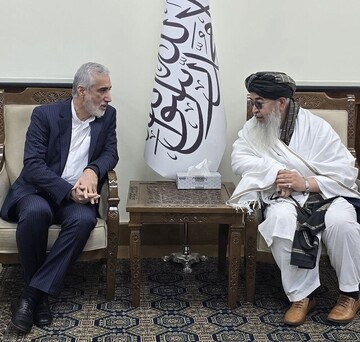
Knowledge-based companies attending Afghan Health Exhibition
TEHRAN – Forty Iranian knowledge-based firms are participating in the Afghan Health Exhibition, being held from December 2 to 4, in Kabul.
Tourism
-
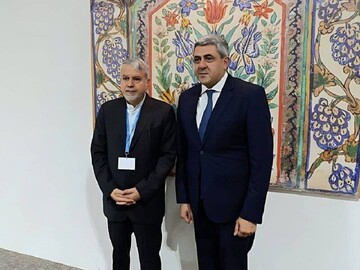
UN Tourism chief offers full support for Iran’s plan to develop intl. investment guide
TEHRAN – The UN Tourism chief has praised Iran’s recent institutional reforms and investment initiatives, saying the agency is ready to help prepare an international guide for tourism investment in the Islamic Republic.
-

Isfahan’s Vank Cathedral draws 500,000 visitors annually, Armenian council member says
TEHRAN - About 500,000 people visit Vank Cathedral in the Armenian district of [New] Jolfa in Isfahan each year, a member of the Armenian Caliphate Council of Isfahan said on Wednesday.
-

Tehran exhibit to showcase ceremonial vehicles used in Qajar to Pahlavi eras
TEHRAN--The exhibition ‘Ceremonial Vehicles of Iran; A Narrative from Qajar to Pahlavi eras’ will open at Niavaran Cultural-Historical Complex’s Automobile Museum of Iran (also known as the Historical Car Museum of Iran) on December 7.
International
-

Naqoura talks: Trojan Horse of economic and political normalization
BEIRUT—The Lebanese government’s decision to appoint former ambassador Simon Karam, a civilian with openly political positions, to lead the Lebanese delegation in the so-called Military Technical Committee meetings in Naqoura is not a procedural adjustment. Rather, it is a political landmine.
-

The mirage of peace: Gaza under fire
TEHRAN – It has been more than 50 days since a ceasefire between Israel and Hamas took effect, intended to end the Gaza war. For Palestinians, however, that promise has meant nothing. The Israeli bombardment has continued unabated, and the humanitarian crisis has only deepened.
-

Global rebuke of Israeli occupation
TEHRAN – The United Nations overwhelmingly condemns the ongoing Israeli occupation of Arab lands amid opposition by the U.S. and a few of its allies.
Video Comment
-

Holy Mary Metro Station marks interfaith unity in Tehran
-

Academics analyze social dimensions of Resistance in Tehran conference
-
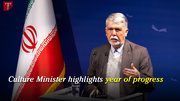
Culture minister highlights year of progress in arts, global image enhancement
-

Gazan Journalists attacked by Israel
-
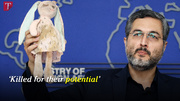
Brother of Iranian scientist murdered in Israeli strike speaks out
Most Viewed
-
'Iranian women’s advances demonstrate hijab is no barrier to progress'
-
Iran changes mind about not attending 2026 FIFA World Cup draw
-
The empire’s orphan strikes back
-
Warsaw distorting history, sowing discord between Iran and Russia
-
IRGC to launch naval maneuvers across key maritime zones in Persian Gulf
-
Iran achieves remarkable growth in trade with D-8 members in 5 years
-
SCO anti-terror drill enters critical phase
-
In a UN letter, Iran, Russia and China hit back at West’s exploitation of the deal it abandoned
-
Iranian industrialists discuss expanding economic relations with Spain
-
Naqoura talks: Trojan Horse of economic and political normalization
-
Iran taking new steps to boost security along borders
-
Trump’s Venezuela policy could turn world into jungle, professor warns
-
Pezeshkian says no degree of pressure can force Iran into submission
-
Moscow to host Iran-Russia joint ICT working group
-
South Korea, Iran possess unparalleled potential to become ideal economic partners: S. Korean envoy
